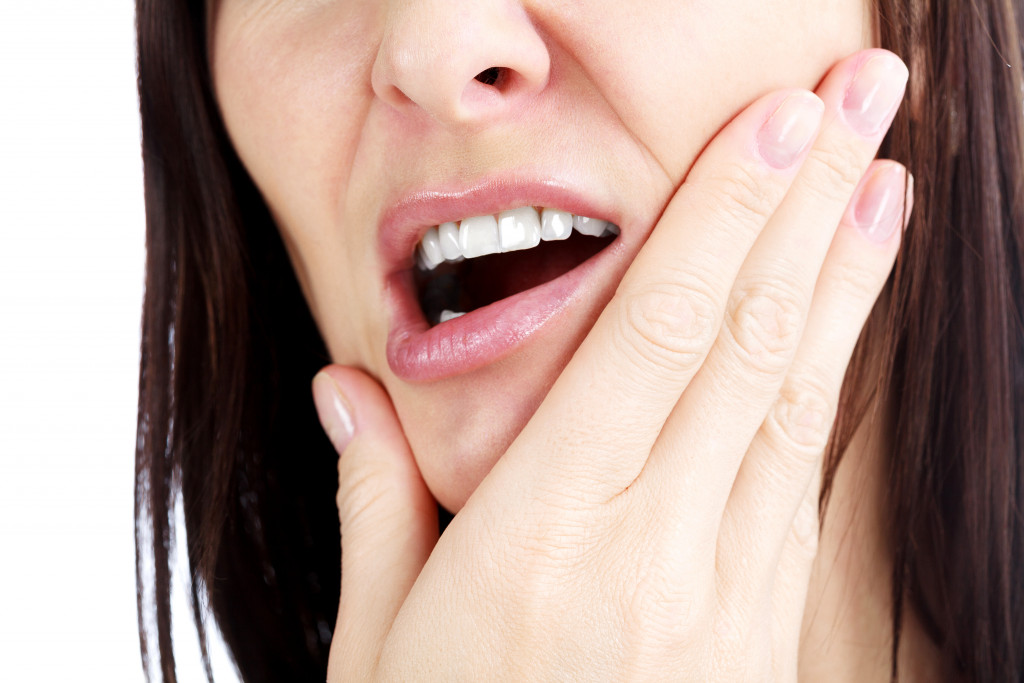• Tooth sensitivity is a common condition caused by exposed dentin and can be attributed to tooth decay, gum recession, brushing too hard, or weak tooth enamel.
• Visiting the dentist regularly for check-ups and cleanings can help identify issues early on and provide necessary treatment.
• Taking steps to protect tooth enamel, such as brushing gently, avoiding abrasive products, and using fluoridated toothpaste, can help reduce the risk of sensitivity.
• Medications like desensitizing toothpaste and remineralization gels or pastes can also help reduce discomfort.
• Limiting the intake of acidic foods and drinks can help reduce the risk of tooth sensitivity.
If you’ve ever experienced a sharp twinge of pain after eating something cold or hot, you may be familiar with the discomfort of tooth sensitivity. While it’s nothing to worry about too much, it’s still important to understand the root causes of this condition.
Tooth Sensitivity
A sensitive tooth is a common condition caused by exposed dentin — the layer of your tooth underneath the enamel. Usually, this dentin is covered and protected by a hard outer layer of enamel. Here are some reasons behind it.
Tooth Decay
One of the most common reasons for a sensitive tooth is decay. When enamel—the hard outer layer that protects your teeth from bacteria—is worn away or thinned, the underlying dentin becomes exposed and vulnerable to external stimuli like temperature changes and acidic foods. If you suspect your tooth sensitivity is due to decay, visit your dentist as soon as possible to prevent further damage.

Gum Recession
Another possible cause of sensitive teeth is gum recession. This occurs when the gum tissue surrounding a tooth begins to recede, exposing more of the root surface and making it susceptible to pain when exposed to hot or cold temperatures. If you experience this symptom, you must see your dentist right away so they can identify any underlying conditions, such as periodontal disease or poor oral hygiene habits, that may be causing the issue.
Brushing Too Hard
It might surprise you, but brushing too hard can cause tooth sensitivity! When you brush your teeth too vigorously, you wear away at your enamel and can even cause your gums to recede over time—both of which can lead to sensitive teeth and heightened discomfort when eating certain foods. To avoid this problem, brush gently with soft bristles and avoid any overly abrasive products that could damage your enamel further.
Weak Tooth Enamel
Finally, weak tooth enamel is another potential source of sensitive teeth. This can occur due to genetics, other illnesses, or medications that weaken teeth enamel over time. If this is an issue for you, talk with your dentist about treatments such as fluoride rinses or sealants that may help reduce discomfort in affected areas.
Tips for Preventing Tooth Sensitivity
Tooth sensitivity is a common issue, but there are steps you can take to help prevent it. Here are some tips:

Visit the Dentist
One of the best ways to prevent tooth sensitivity is to visit your dentist regularly for check-ups and cleanings. They can identify issues early on, like decay or gum recession, and provide treatment before they become more serious problems.
Additionally, many dental clinics like Metro Dental have a website. The Metro Dental clinic website can help people book appointments. It can also help locate the nearest clinic.
Protect Your Enamel
You should also take steps to protect your enamel from damage. This includes brushing gently with a soft-bristled toothbrush, avoiding overly abrasive products, and using fluoridated toothpaste to help strengthen the enamel.
Medication
Various medications can be used to help reduce tooth sensitivity. These include desensitizing toothpaste and remineralization gels or pastes, which can help strengthen the enamel and reduce discomfort. Moreover, supplements can be taken to strengthen teeth and reduce sensitivity.
Replace Your Teeth
Human teeth are naturally meant to last a lifetime, but sometimes the damage can be too severe to stay. If this is the case, your dentist may recommend replacing the damaged tooth with an artificial one that will allow you to enjoy all your favorite foods without pain or discomfort.
Limit Acidic Foods and Drinks
Finally, acidic foods and drinks can also cause problems with teeth sensitivity. Limiting your intake of these items may help reduce your discomfort. This includes juice, tea, coffee, and citrus fruits.
Tooth sensitivity is a common issue but can be managed properly. Following the tips above can help reduce your risk of developing this condition. In addition, this can ensure that your teeth remain healthy and strong for years.





